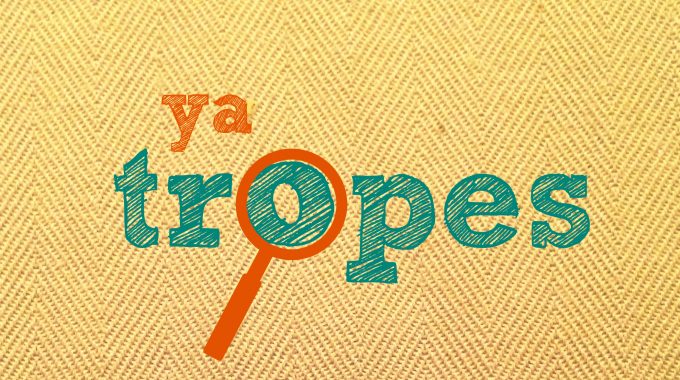Why You Don’t Need Rhino Skin to Be a Writer
Way back when you started writing your first For Serious stories, when you first started thinking maybe you weren’t half bad at chucking words on a page and shuffling them into some non-vomitrocious order, you probably got the message loud and clear from someone:
BEING A WRITER IS HARD.
YOU NEED SKIN LIKE AN ELEPHANT CROSSED WITH A RHINO CROSSED WITH A CATCHER’S MITT AND ALSO TEFLON ARMOR ON TOP OF THAT
You must be able to withstand ALL THE THINGS without stopping to indulge—or worse, bandage—your stupid tender feels.
Basically? Go outside and for the next five hours, have a friend alternately dump raccoon entrails on your head and blast you with a firehose. If at any point you whimper, blink, or use a trashcan lid as a makeshift shield, you’re not ready to be a writer.
….Guys.
This message?
This is not a helpful thing.
I’m exaggerating, yeah, but I’ve seen variations of this tough-love rhetoric bandied about for decades: by teachers, bloggers, tweeters, and other authors. It made my teeth chatter as a teen, when I was gathering the courage to submit short stories to school contests. And I know it comes from a good and helpful place, but I’m afraid it’ll scare away some of today’s young writers with a false implication: that this business of word-slinging requires the skin of an armadillo, the heart of a lion, and emotion-deflection talents comparable to a duck flicking water off her tail feathers.
Let me stand here, an author lady with fragile heart-parts, and tell you that’s a steaming pile of rhino poo.
Because here are some things that, if you are a writer, might be palpably, unavoidably a part of you:
Extreme empathy. Your teleportation device that takes you directly into your character’s brain. It’s a gift, right, but it can also feel like a thin permanent bodysuit of hurt. You don’t just ache for your characters–you ache for your friends and family, for stray dogs and sad kids, for billions of strangers who have big and small injustices dumped on them every day. You ache at least a little most of the time, and you’re not sure how to power that down. You’re not sure you want to.
This is okay.
Sensitivity. The rabbit-ears that attune you to people’s nuances and assign them meaning. The things that teach you how to recognize a flutter of doubt or a whisper of fear on a person’s face, and translate that onto the page when you need to. The rabbit-ears are super-useful—but the thing is, they’re always touching you. Often they are mounted directly on your head. Unless you’re one of those people who’s A+ at compartmentalizing, it’s tough to be sensitive to people without also being a self-sensitive person. You can’t adjust the ears so they’re both pointing outward and neither points at you. You can’t have a handyperson come in and extract your troublesome Internal Sensitivity Box while retaining your critical Sensitivity to Others receptors. They’re bound up together, part of the same package.
This is okay.
Emotional camaraderie. As a writer, you don’t squelch or bury difficult emotions. It’s your job to spend time with them, seek to understand them, try your best to describe them so others won’t feel alone.
You and emotions are like Snow White and the woodland creatures. You can hang. Yeah, even with that one squirrel who bites, and that skunk who won’t stop spraying your favorite boots.
When the tough stuff starts, when Twitter snarls your name or scads of people hate the character or book you’re proudest of, it’s hard to just shoo the woodland creatures off to the forest and expect them to go. They live with you. They helped you build your house. They helped you tell your stories. Whether they’re being an asset or a liability, you’re bound to keep them and ride it out. You respond to things with emotion, because emotions are the singing bluebirds who help you weave words on the page.
This is okay.
Anxiety. I’m not suggesting that all writers struggle with anxiety, but it’s a daily part of life for many authors I know, myself included. Things that read as NBD to other people read as a big fucking deal to me, because my mind is always hard at work turning snowballs into avalanches. Messages like “toughen up” and “get a thicker skin” feel super-dismissive to people who literally can’t, because that’s not the way their brains work. For some, the fear that we’ve caused hurt and disappointment? The fear that we’ve bungled a plot or fumbled a character or otherwise failed at the the one thing we passionately hope we don’t fail at? Stuff like that can be a ticket to Panicville, with long, unavoidable stops at Self-Loathing Junction and the Perfectionism Refill Station. It’s not pretty, but for some of us, it’s reality.
This is okay.
Undoubtedly, it takes persistence and resilience to be a success in this business—no one would argue otherwise. But I’d love to see the message evolve from TOUGHEN UP WRITERS into something more compassionate and constructive, something that recognizes what a thorny proposition it is to be sensitive on the page, but tough as nails on the public stage.
For now, I’m telling you what I wish someone had told me:
You don’t need a thick skin to be a writer.
Don’t set your goalpost at “not caring when bad shit happens.” Aim instead for realistic recovery time. Find ways to work through it and heal when someone’s words hurt, or move forward sensitively and helpfully when your words hurt someone else. Whether you need a day off for reflection or self-care, a long chat with a trusted friend, weekly talk therapy, or twenty minutes alone with a punching bag, find your special thing that keeps you from creative paralysis. (*As long as it’s not “being an asshole in public” or “arguing with reviewers on Goodreads.”)
You don’t need to brush stuff off immediately and not take anything personally.
It’s your work. It’s fucking personal. If you choose to read your reviews (I don’t but that’s a whole ‘nother post), you’re allowed to feel crappy and angry when someone one-stars your book because the dog died on page 189, or because you wrote a queer romance and they hate queer romance, or because their personal experience with X did not align with your characters’ experience. If you get something wrong despite your best efforts, you’re allowed to sit in your room for a while and feel discouraged and shitty and embarrassed as hell. You’re gonna hear that it’s not about you, and it’s not about your feelings, and it’s TRUE that criticism is vital and you don’t get to put on the Tiara of Dented Feels and publicly flail in front of someone who’s trying to speak. But please don’t think that the very fact of your private emotions is somehow wrong, that sitting with your hurt for a while before learning and moving on means you’re weak or fragile or improperly prioritizing your pain over the pain of others. Your own feelings are instructive, and stuffing them down in the name of “toughening up” isn’t going to help you work through them and do better.
You don’t need a personality transplant to succeed.
Your empathy, sensitivity, and vulnerability make you who you are as a writer. Don’t think that the very traits that help you understand others are also liabilities that will keep you from succeeding. I have anxiety and definitively lack rhino skin, but somehow I’ve managed to publish two books and live to tell about it. (My survival strategy includes: not reading my reviews, taking time for self-care, listening and learning from many diverse voices, accepting that no book will be loved by everyone, boosting other writers as much as I can, not beating myself up for fleeting jealousy or anger, and keeping my focus on reading and supporting the YA books I love.)
So go forth and feel all the things, and build your own survival toolkit. Because you can be a writer, and you can be a success—no rhino-elephant-armadillo skin required.


When I get really sensitive, I always hear those people into my head who’ve told me to toughen up! You can’t be a writer if you don’t have a thick skin!
Well if I wrote and published a novel, what would you call me, then? If I can’t be a writer?
Yeah. I heart this post.
Faith, I do the same thing…those voices are really unhelpful, and never actually help you move on. (If anything, they just sink you deeper into your bad feeling.) Thanks so much for reading–glad you identified! <3
[…] an article I enjoyed: Why You Don’t Need Rhino Skin to be a Writer is a great article about the fundamental incompatibility between writing, which attracts empathetic […]